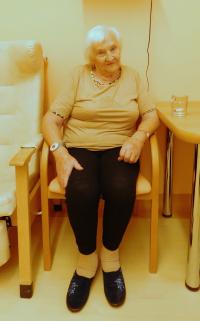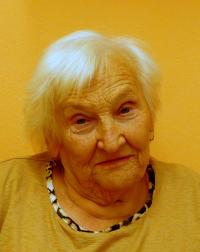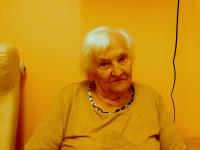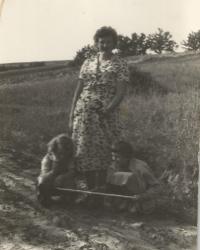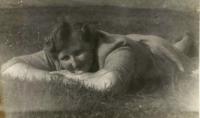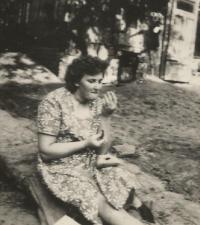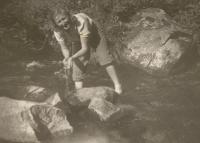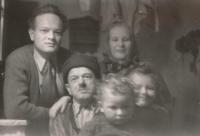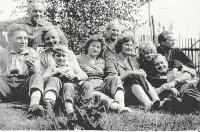We held hands with my mom and we were trembling with fear

Download image
Eliška Onderková, née Olšanová, was born on November 6, 1928 in the small village Veselka in the Blansko district. During the war she worked in the Baťa factory in Zlín for two years. After the bombardment of Zlín on November 20, 1944 she fled home to Veselka and she has not returned to the factory anymore. From December 15, 1944, the Olšan family provided a shelter for a group of partisans from the troop Jermak in their home in Veselka. The partisans came from Žďárná, where the Gestapo had attacked them on December 7, 1944 in the house of the Šmatla family. Three partisans died after a gun-fight. The other partisans and the family of Mr. Šmatla managed to escape, but father Alois Šmatla and his son Miroslav were caught later and they died in a concentration camp. The mother, and daughter and son survived. The son Vladimír Šmatla and his sister Růžena Šmatlová were provided with a hiding place in the family of Eliška Onderková and they were hiding in their house until the end of the war. Due to the air raids on Brno at the end of 1944, Eliška’s three brothers fled from their Totaleinsatz jobs there and they were subsequently hiding in a bunker near the village until the end of the war. At the time when food was available only in exchange for food ration stamps and everything was scarce, the family thus had to feed the group of partisans as well as Eliška’s three brothers. After the war, Eliška continued to stay in her native house for some time, later she moved to Mouřínov and then she lived in Křetín, where she resided in 2016. She has held several jobs. Among other, she worked as a secretary in the local administration office in Veselka, and she spent the longest time employed as a stock accountant in the children’s sanatorium in Křetín.
